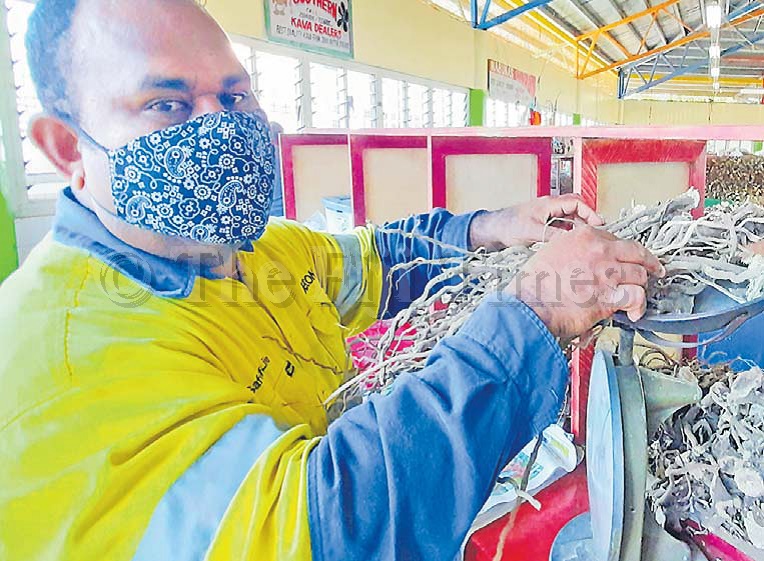Livai Qionilawa has no regrets ending his permanent employment he had held for the past three years.
He was working with the Ministry of Labour for quite some time before he decided to resign to start his own business as a kava seller.
Qionilawa has been helping his older brother, Viliame Ratumaiyale sell grog (kava) at the Suva Municipal Market through a middle man.
After he realised the good profit kava brought to his brother, Qionilawa also wanted in on the lucrative business. It didn’t take him long before he was certain to quit his job as a civil servant and opened his stall at the market.
“One thing that is good about selling kava is you are your own boss. I didn’t have to wake up early in the morning to catch the first bus to work anymore.
“Plus at the market, I received money every day whereas my permanent job — I received money after every fortnight.”
Qionilawa said selling kava was a good business in Fiji because a lot of people consume it.
He said when he was a young boy living in his village of Lomati, Nabukelevu, in Kadavu, only the elders drank grog and nobody else.
The 39-year-old said that today was different and almost everybody drank kava for all sorts of occasions.
“I know some women in villages who drink more yaqona than men.”
Qionilawa says his customers are from his districts in Nabukelevu-ira.
Amid the COVID-19 outbreak, his grog business kept flowing but at a very slow pace.
“Even though the business is still slow and not in full operation, I’m content because money is with me all the time.
“During my working days, I hardly have $5 in my pocket but today I can buy whatever I want to.
“The grog business is very good because it helps me in my daily needs and whatever is needed for my family,” he said.
He thanked all his customers for believing in him and also thanked the Ministry of Health, Prime Minister’s office and the Ministry of Social Welfare for buying his grog.
Qionilawa urges youths roaming urban areas and those unemployed to open their eyes to the potential investments back in their villages, and farm the land.
“Money is in the land and the only thing you have to do is go back and sweat for it.
Qionilawa said most of the grog farmers in his village stayed in their farm for a week and went back to the village on Friday afternoons.
He said that is why they have a lot of farm produce because they use their time wisely and most importantly they do not consume grog every day.
“The one thing they maintain is their supply, that’s why they build small farm houses to keep them away from the relaxed life in the village.
The fi rst few years you will face hard times but later on when you harvest your plantation, you will be smiling every day and it will encourage you to work even harder.
Qionilawa said he had applied for an exporter licence to help him export his grog overseas to further expand his business.



